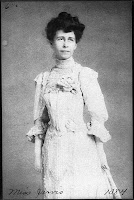Three in One? The Issues

The Sunday following Pentecost is traditionally devoted to a celebration of the Trinity – that theological reflection on the nature of God that seeks to understand the relationship between that Being that serves as the Ground and Source of all existence (the “Father”), that Being who was experienced by human persons as being the human embodiment of the Divine or who had a co-existence with the Father” in some way, and that Being enigmatically referred to as the Holy Spirit, the Advocate, or the Comforter. These questions have puzzled and exercised the theological imaginations of Christians for centuries. This Blogspot will certainly not fully untangle any of the knots involved. I’m not even sure I will even be able to provide a sufficient survey of the issues involved, but will instead offer some of the reflections that I have found helpful. The basic formulation of the Trinity arose out of the efforts of the early Christian communities to understand the true nature of Jesus, so...



